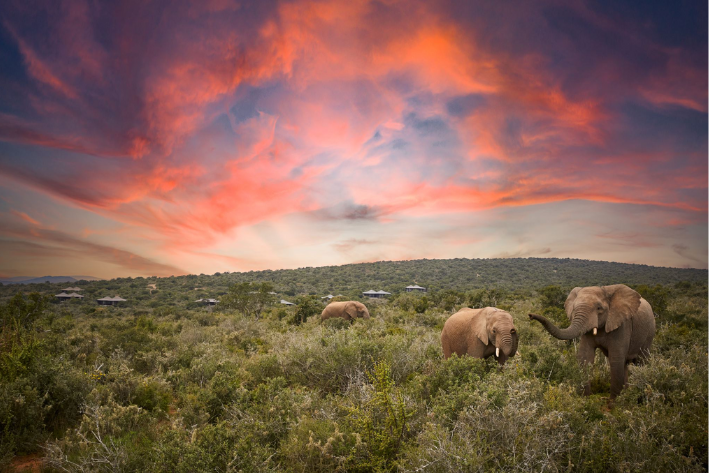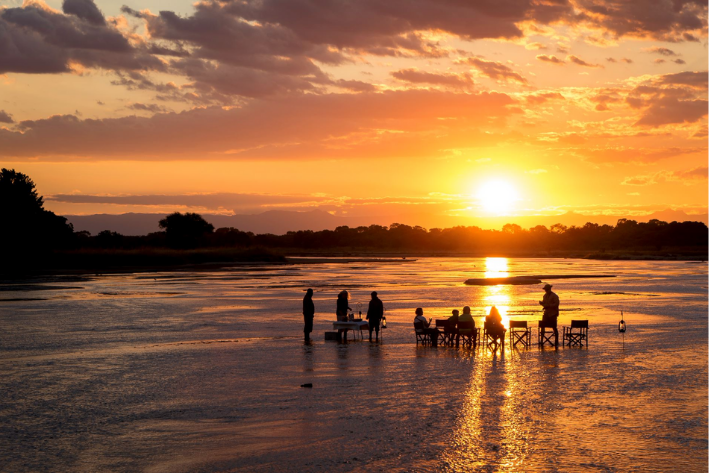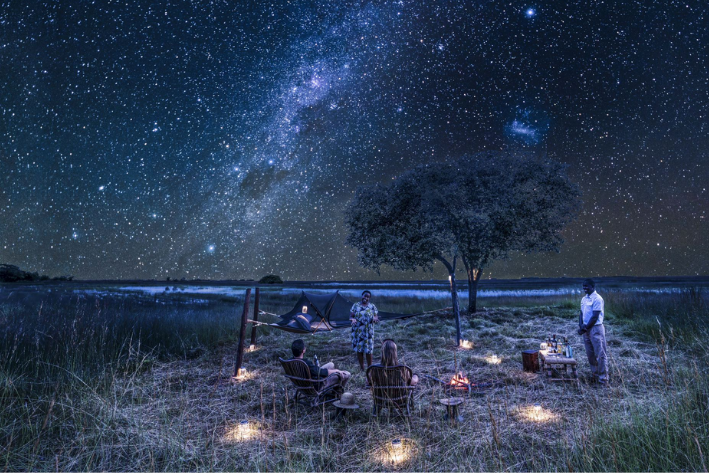My Safari to Tswalu Kalahari
A trip report from my Safari to Tswalu
I have just returned from an incredible safari at Tswalu in the Kalahari Desert of South Africa
This is my safari report from my stay at Tswalu…..
Tswalu means “New Beginnings” which is the perfect term for what Tswalu stands for. After years of hunting and farming, Tswalu has been given a new beginning and is being transformed back into its original, natural state thanks to a dedicated team on a mission…..
WOW, where do I start with this! Tswalu has always been one of those places I have dreamt about for many years as I love desert landscapes and the animals that have adapted to living there, so when the opportunity came for me to head north and experience a safari at Tswalu, I dropped everything to take it.
Tswalu is owned by Nicky Oppenheimer, who, over the course of the last 20 years has slowly restored this fragile ecosystem back to its natural state. Years of cattle farming destroyed the landscape and many of the animals were killed off through hunting or carnivore eradication, so it has taken a lot of patience, determination, and perseverance to get Tswalu back to where it is today. Animals have been reintroduced and are now thriving under the new conditions and even though the quantity of animals cannot be compared to the likes of the Serengeti or Sabi Sands, the diversity is incredible. This is the place to come to see the unusual animals that you usually don’t get to see in your normal wildlife reserves. Things like sable, roan, oryx, steenbok, springbok, bat eared foxes and red hartebeest are seen regularly on Tswalu’s reserve. For me, Tswalu is also about the immense vastness of pure wilderness, with over 120,000 hectares to explore, and with only 34 beds, you are guaranteed a private safari experience. Each group of guests get their own vehicle, guide and tracker team and so activities are completely tailored to your interests. Like us, if you want to spend all day out on game drives, then your guiding team is more than willing to accommodate you. Aside from game drives, Tswalu also offers walking safaris, sleep-outs and horse-riding safaris, so there is plenty for everyone to do.
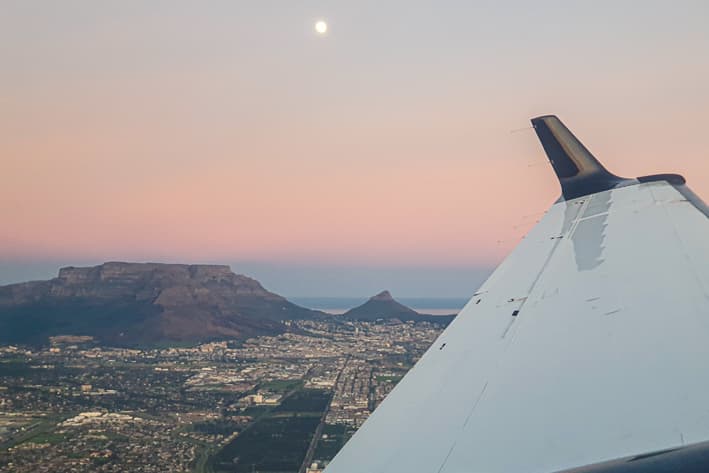
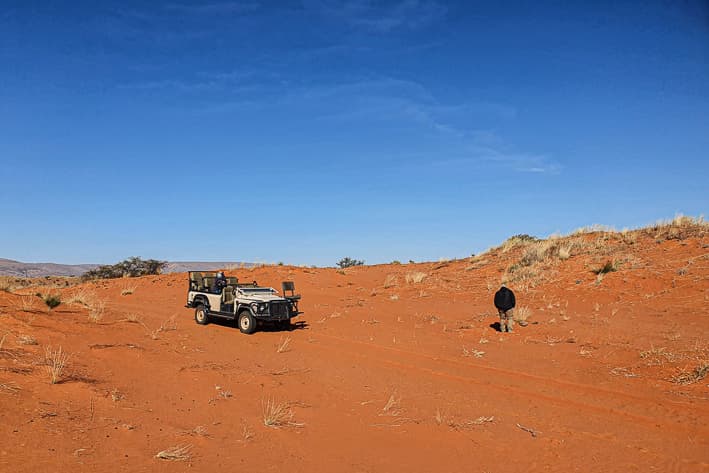
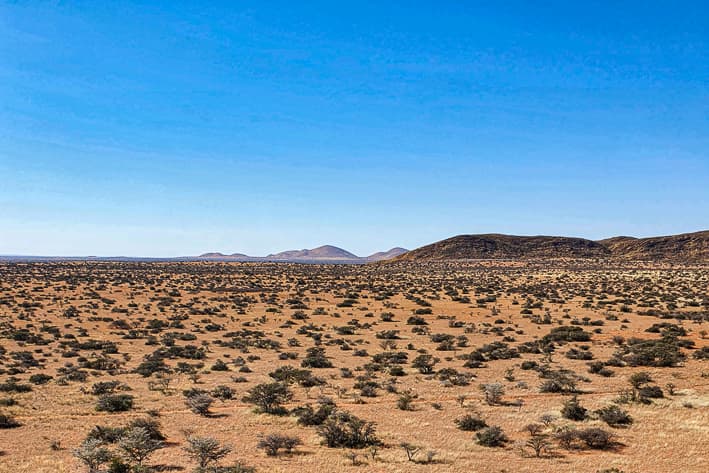
Desert Adapted wildlife
For us, our focus was more on the unique and rare desert adapted animals that Tswalu is renowned for. Things like aardvark, aardwolf, brown hyena and pangolin are all extremely difficult to see elsewhere, but thanks to the ongoing research and conservation efforts at Tswalu, these rarely seen animals thrive. On our first night, we were lucky to see a pangolin as he emerged from his burrow for the evening and as we were the only people there, we got spend a good amount of time with him. In over 40-years of safaris, this was only my second pangolin sighting. We also saw a glimpse of an aardwolf as it disappeared into the bushes. On our second day, we saw a brown hyena at its den, and we were lucky to see 4 cheetah cubs that had just been kicked out into the world on their own. By the end of our 4-nights we had seen 1 pangolin, 2 aardwolves, 1 aardvark, 2 brown hyena, 8 cheetah, 2 black rhino (mother and calf), 5 white rhino, 26 lions, meerkats as well as herds of roan, sable and oryx. Due to the incredible rain, Tswalu experienced at the beginning of the year, the grasses were unusually long which made it difficult to see some of the more elusive animals, but in a “normal” year, there is little grass to obstruct your view and our guide Kalie was saying that they sometimes get to see several aardvark sightings in one night.
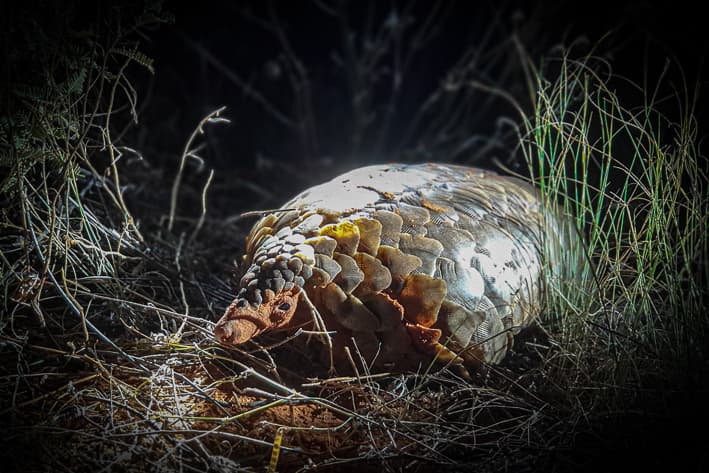
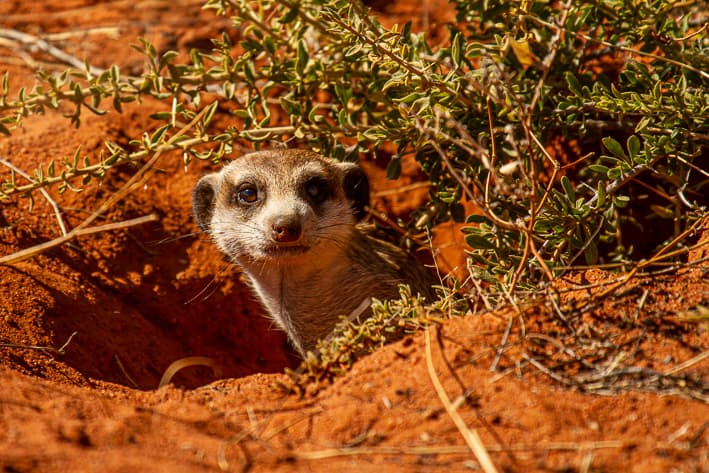
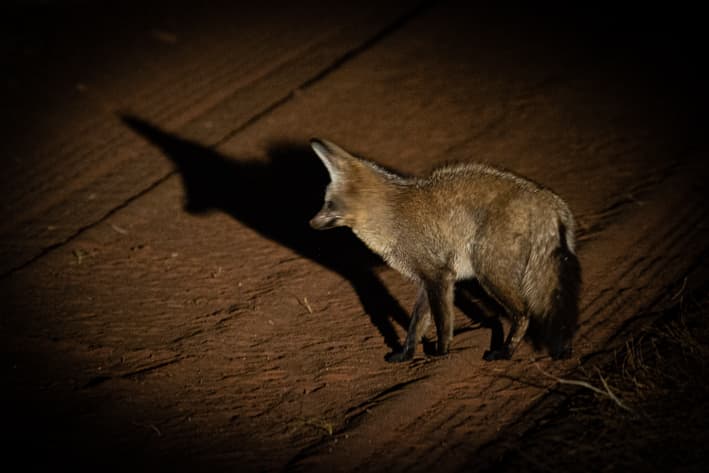
Tswalu’s Lodges, The Motse and Tarkuni
There is one lodge and 1 private villa on the property, accommodating 34 guests. The Motse Lodge has 9 thatch villas, including 3-family villas. Each villa has an ensuite bathroom with indoor bath and shower as well as an outdoor shower. There is a small patio out front overlooking the Kalahari Desert. The 3 family villas have a shared lounge and 2-ensuite bedrooms with a large veranda out front. The main lodge has plenty of space to relax, eat and enjoy the view of the waterhole. There is a large and a small pool for guests which would be perfect on a hot summer’s day, but in winter, it is a little chilly for a swim. Tarkuni, is the private villa which has 5 ensuite rooms, each with a small veranda and indoor and outdoor shower. The large lounge with double height ceiling is impressive. There is a large outside area with a veranda that wraps around to a boma, small plunge pool and sala. Upstairs has a library and small spa room. Tarkuni is perfect for a group of friends or family travelling together.
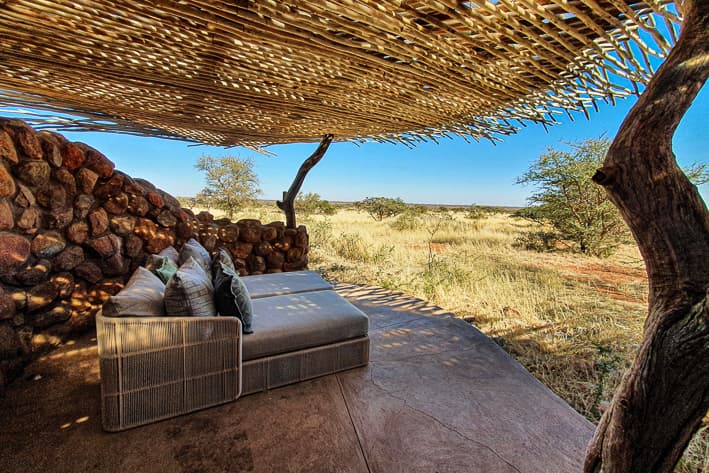
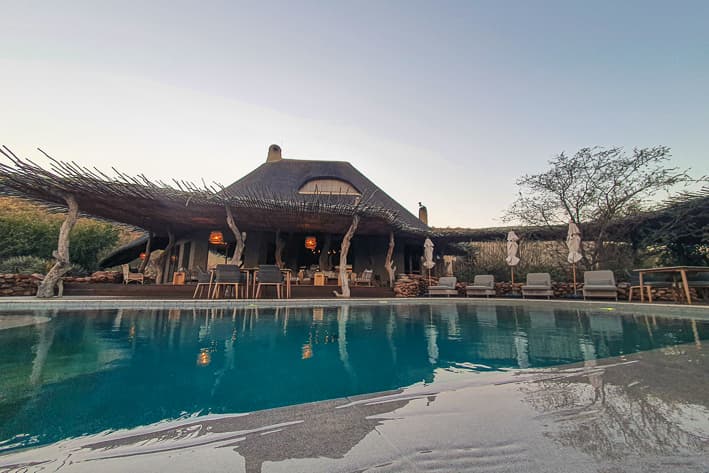
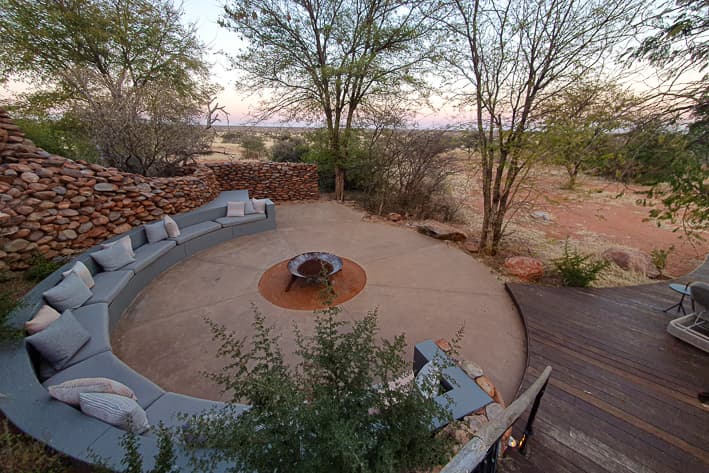
The Food
One of the biggest factors about Tswalu, is their food as well as flexibility. Meals can be had any time of the day and every meal comes with an ala carte menu to choose from with a wide selection of choices. The team at Motse, try and vary where meals are served. Mornings are chilly in winter and so all breakfasts were indoors with a fire going to keep things warm. Lunches are usually outside on the deck, although because we were out all day, we had incredible picnic lunches that went with us including table and chairs setup in the dunes. Dinners are inside or around the fire in the boma because of the cold. One morning, all the guests met up for a brunch at a secret spot in the mountains with the most incredible views out over Tswalu.
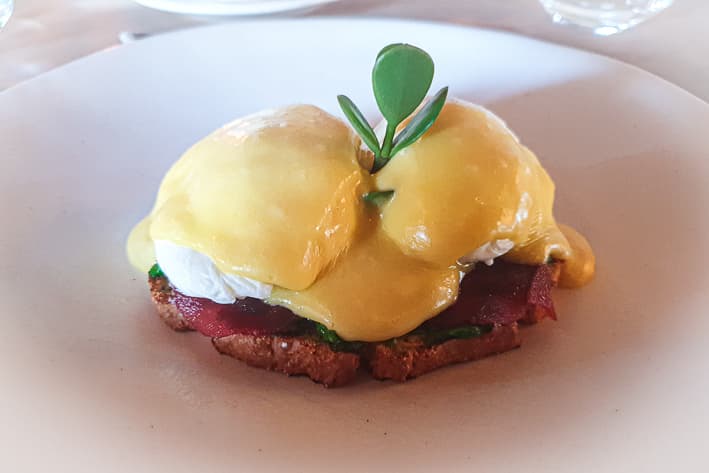
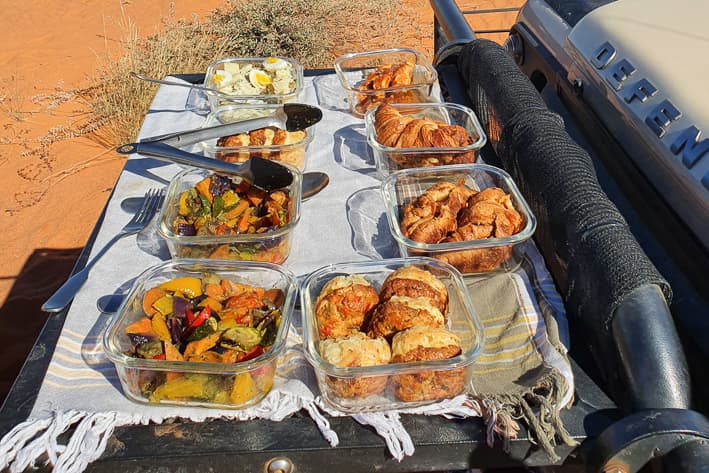
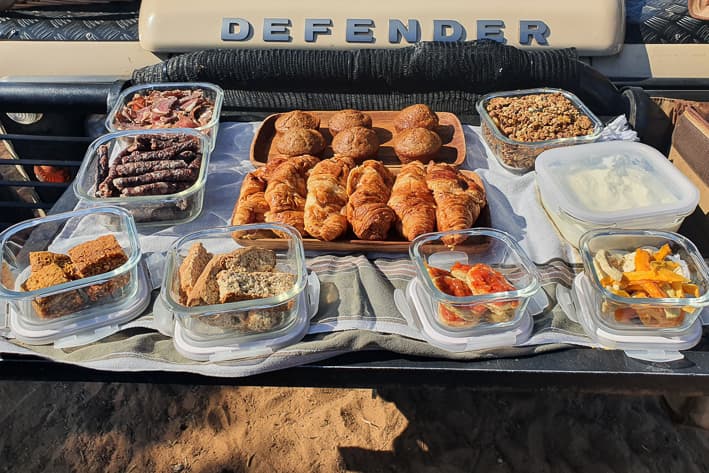
Klein Jan
A real highlight of anyone’s stay at Tswalu, is a dinner experience at Klein Jan. Jan is the first South African chef to receive a Michelin Star and has a restaurant in Nice, France. Together with the team from Tswalu, Jan opened a restaurant on the Tswalu Reserve that serves dinners exclusive for Tswalu guests. The whole experience last about 3-hours and is a journey through the old farmhouse and into an underground tunnel that feels like you are being transported into another world. This is not just another meal, this is a journey starting in the old farmhouse, through the underground cellar tunnel and ends in the restaurant overlooking the Kalahari. The food is all locally sourced within a 400km radius of the restaurant, and everything has a story and a taste of the Northern Cape. This is truly something that has to be experienced to really appreciate. Nothing I say or show you can really prepare you for this out of the world experience.
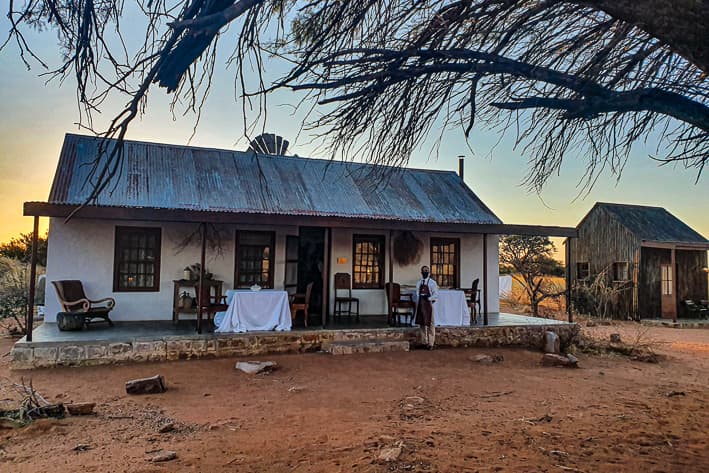
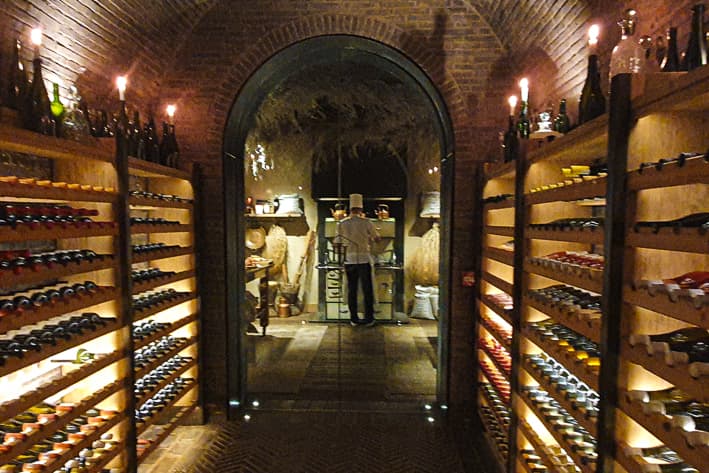
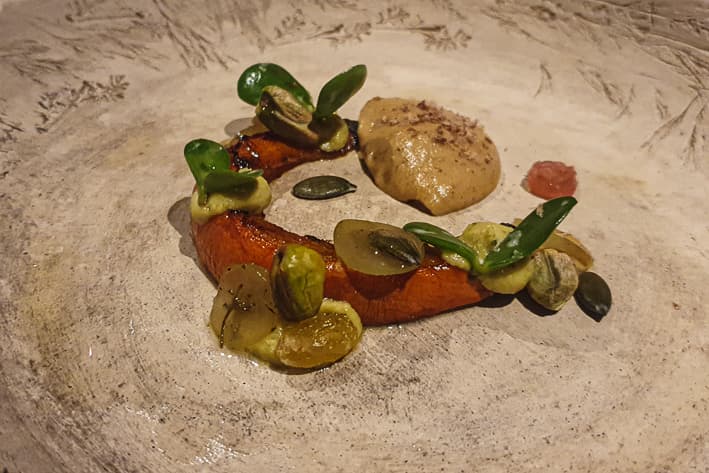
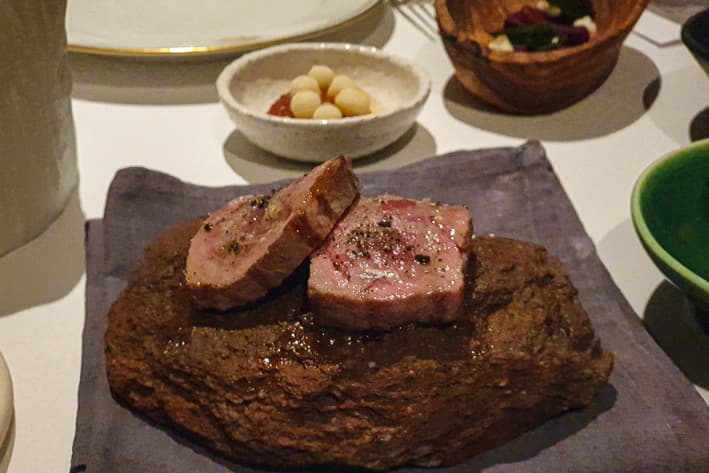
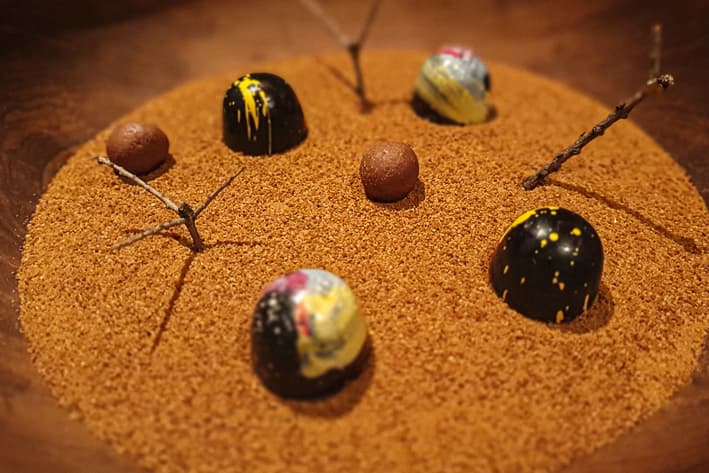
Tswalu’s commitment to conservation
One of the things I love about Tswalu, is their dedication to conservation, community and research. The Tswalu Foundation has built schools and clinics on the reserve for the local villages and staff. Several wildlife researchers are stationed at Tswalu studying various animals and the impact climate change is having on the ecosystem, but also on the wildlife. As mentioned previously, Tswalu used to be a hunting farm and cattle farms which had a negative impact on this fragile ecosystem, but once the Oppenheimer family took over, they have converted the farms into wildlife havens reintroducing key species back into the Kalahari. Things like wild dogs, cheetah, leopard and lion were all shot out by cattle farmers, but they have now been reintroduced and are doing well. I had some of my best sable and roan sightings and had incredible sightings of cheetah and the lions. Leopard and the wild dogs are a little more elusive, so evaded us this time round. Because of the fragile ecosystem, guides are only allowed to drive off-road for key species like lion, cheetah, wild dog, rhino, buffalo and leopard. Certain areas are off limits for off-road driving, and it is great to see the guides sticking to these policies and understanding the reasons behind these policies.
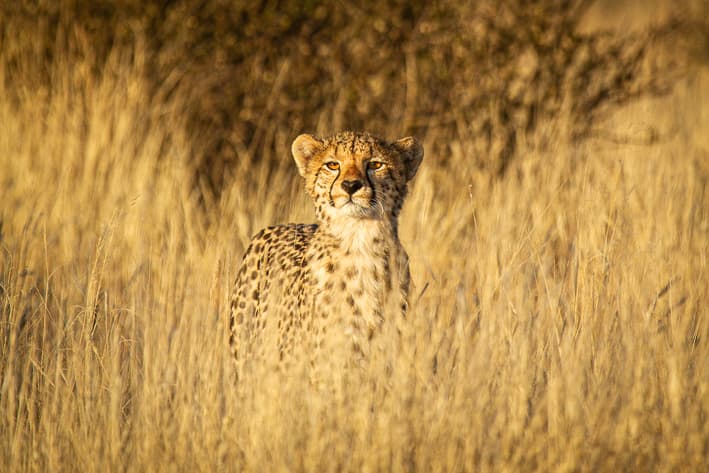
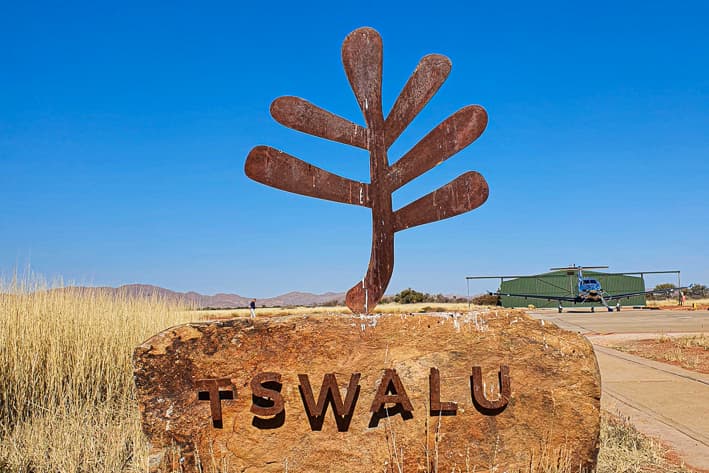
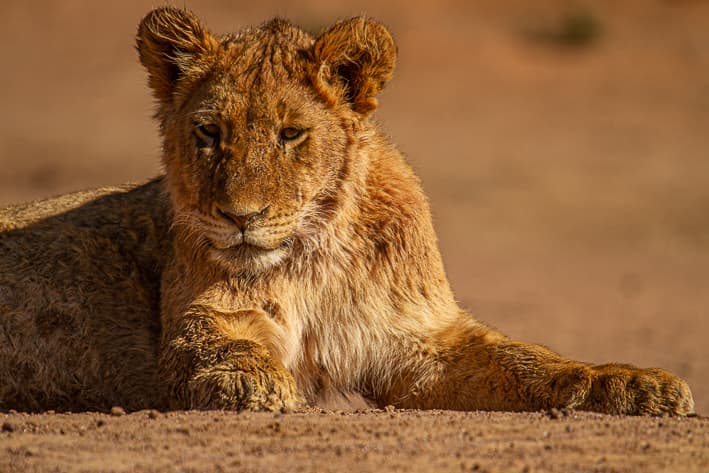
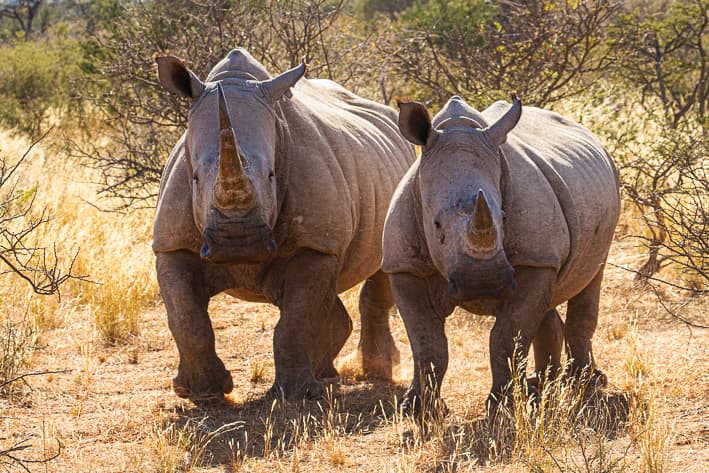
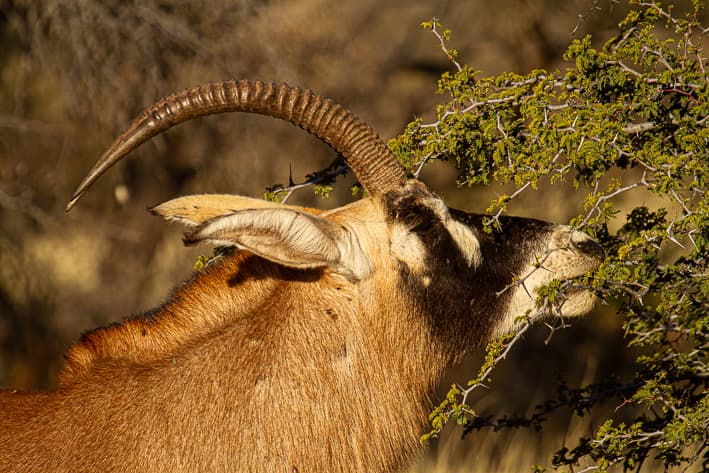
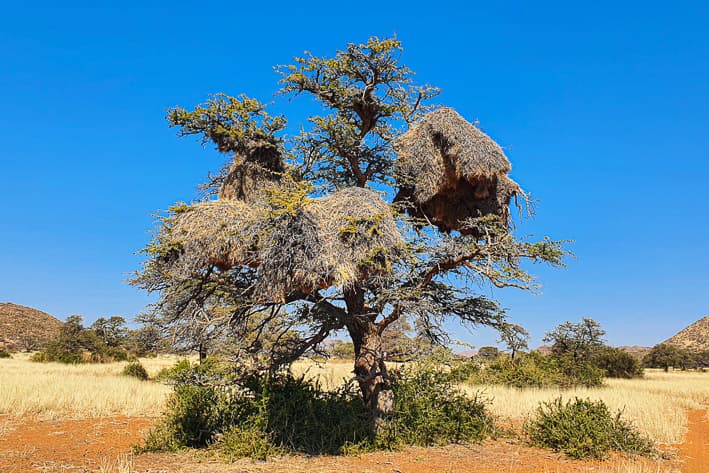
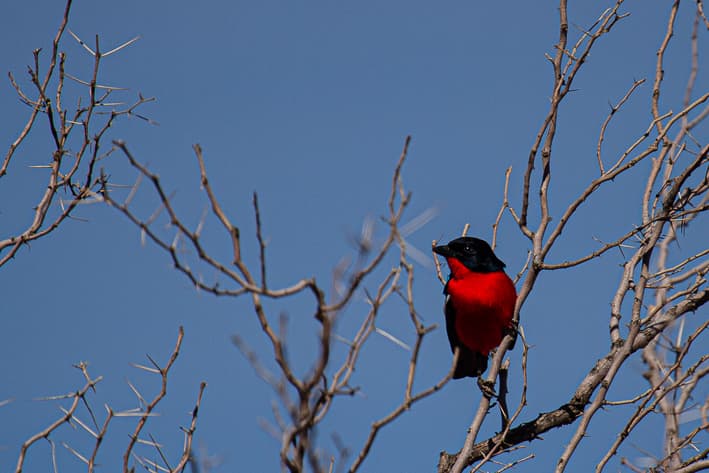
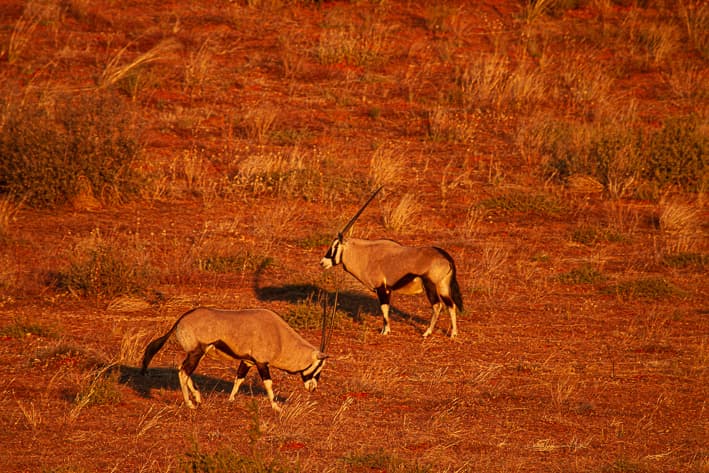
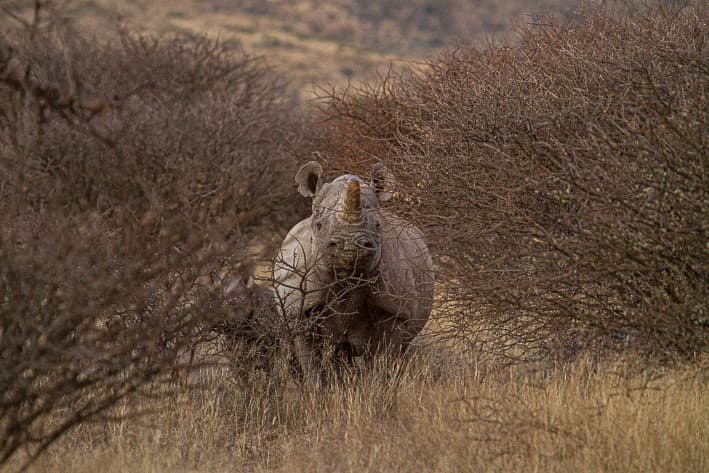
Your safari to Tswalu
Tswalu is not going to be for everyone as it is not overflowing with wildlife, so for people wanting constant herds of animals, then Tswalu is probably not for you. I would definably recommend combining Tswalu with the Sabi Sands where you will get to see your “Big Five” and tick those boxes. Tswalu for me, is more a wilderness experience with an incredible diversity of wildlife once you start to scratch the surface. For a family safari, Tswalu is perfect as there is so much for kids to do. They also have childminding facilities, so if parents want a game drive on their own, they have the freedom to do this. All-in-all, I was blown away by the safari experience, landscapes, incredible wildlife, unique animals, food, the service, guiding and overall safari and I cannot wait to go back again. I would definitely recommend spending at least 3-nights at Tswalu on any South African safari. With direct flights from Cape Town or Johannesburg into Tswalu’s private airstrip, it is easy to combine with a safari to Botswana, Zimbabwe, Zambia, the Sabi Sands and even Mozambique.
So, for your next safari to Africa, please make sure you include Tswalu in your itinerary.

